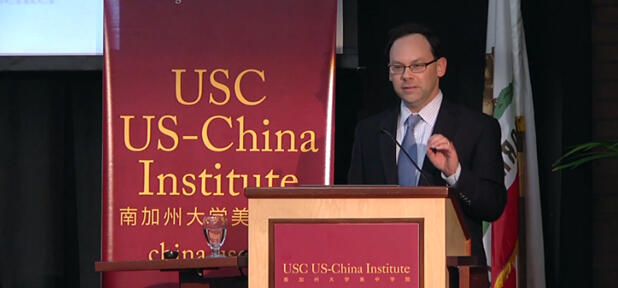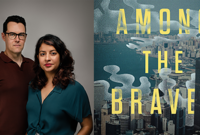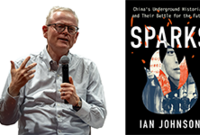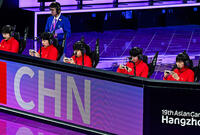About the Speaker
Richard Wike is directs the Pew Research Center's Global Attitudes Project. He conducts research and writes about international public opinion on a variety of topics, including America's global image, the rise of China, democracy, and globalization. Previously, he was a Senior Associate for international and corporate clients at Greenberg Quinlan Rosner Research. Wike earned his doctorate at Emory University. He has written for Foreign Policy, The National Interest, BBC, CNN, CNBC, and other online and print publications, and he has been interviewed by news organizations worldwide.
This video is also available on the USCI YouTube Channel.
Through Tinted Lenses? How Chinese and Americans See Each Other
What do Americans and Chinese "know" about each other and how do they know it? What images do they have of each other's society and state? Where do these images come from? Why do some endure and others change? How do images vary with age and other factors? How do these perceptions affect the decisions and actions of governments, businesses, civic groups, and individuals?
On November 1-2, 2013, leading academics gathered with pollsters, journalists, diplomats, and entertainment industry practitioners to explore these questions and questions and others at a conference hosted by the USC U.S.-China Institute.
Polls suggest that a slight majority of Americans believe that the values of Chinese and Americans are so different that cooperation to address international problems is impossible. Most Chinese feel the U.S. is working to constrain China's continued rise. Americans and Chinese have increasingly negative impressions of each other's countries. Yet, we are visiting each other's countries more than ever before, becoming ever more intertwined, and are working cooperatively in many different ways to address pressing social, economic, and environmental issues. At the conference we examined how these exchanges affect perceptions along with the even more powerful role played by new and old media, popular entertainment, and political discourse.




